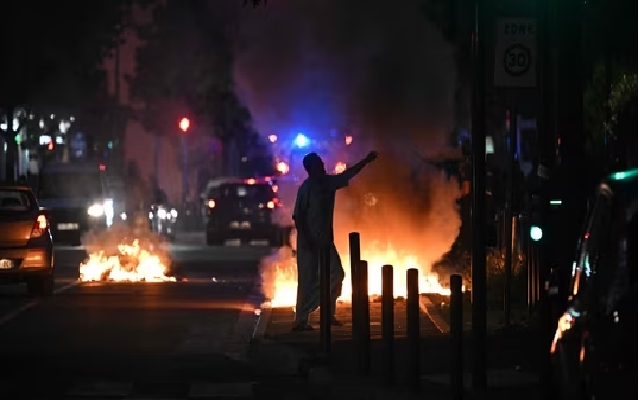.gif)
.gif)

In the aftermath of a fatal police shooting of a 17-year-old boy during a routine traffic stop, France has been engulfed in widespread unrest for the second consecutive night.
The incident, which took place in the working-class Paris suburb of Nanterre, has reignited deep-rooted concerns about police brutality in the ethnically diverse districts of the country's major cities. President Emmanuel Macron has called for a cabinet crisis meeting on Thursday to address the escalating situation.
Interior Minister Gerald Darmanin revealed that 150 individuals had been arrested in connection with the overnight violence. He expressed his dismay at the "unbearable violence against symbols of the Republic," noting that town halls, schools, and police stations had been set ablaze or attacked during the unrest. Additionally, dozens of police officers sustained injuries during the clashes that transpired across the nation.
The French government responded to the escalating situation by deploying 2,000 police officers in the Paris region alone. However, the violence extended beyond the capital, with clashes reported in the cities of Lille and Toulouse in the north and southwest respectively. Unrest also occurred in Amiens, Dijon, and the Essonne administrative department south of Paris.
The teenager's North African origin has contributed to the perception of police brutality within the ethnically diverse communities of France's major cities. The tragic use of lethal force by officers in Nanterre has further exacerbated tensions, prompting protests and clashes with law enforcement.
The Nanterre prosecutor is set to provide an update on the ongoing investigation into the shooting during a press conference scheduled for 11:00 a.m. local time. Meanwhile, President Emmanuel Macron has called for an emergency cabinet meeting to address the crisis and discuss potential measures to address the concerns of the public.